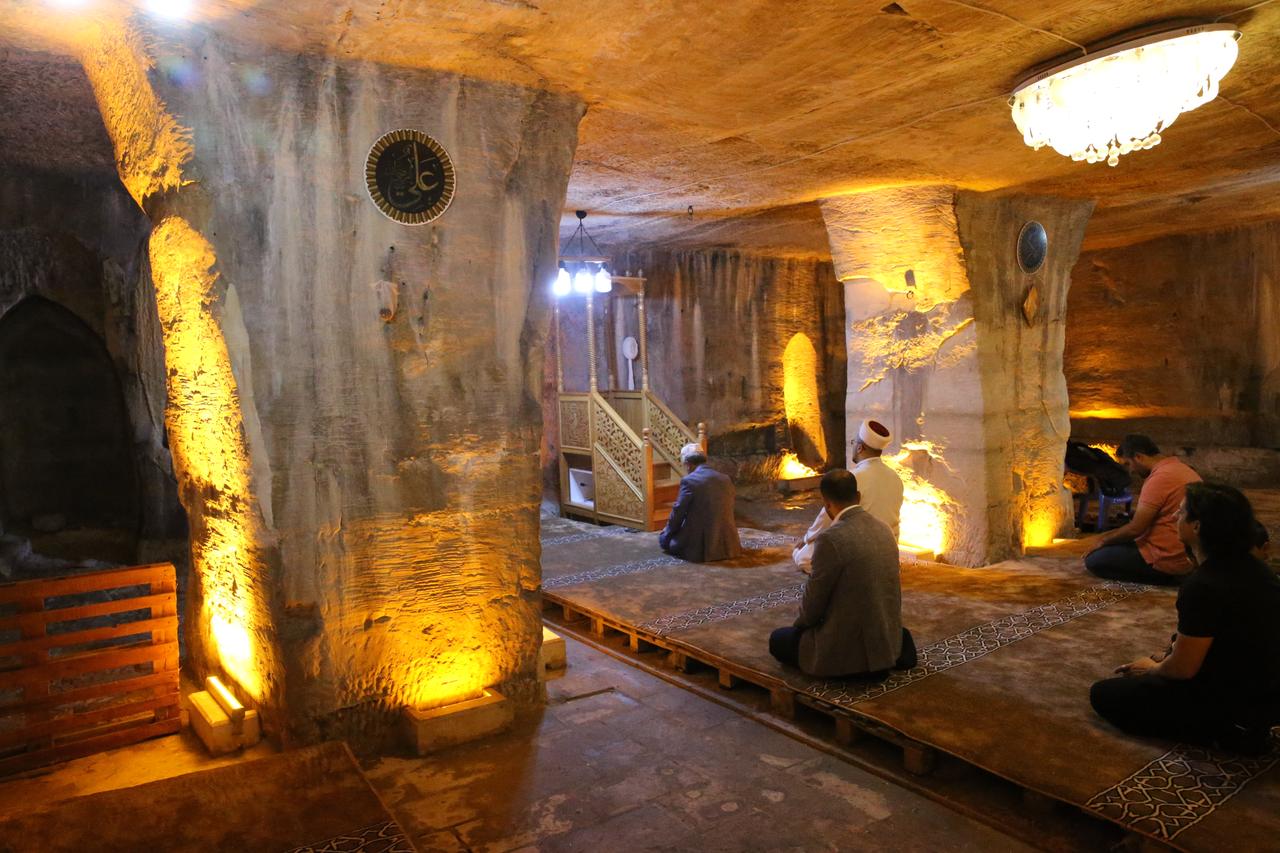
A unique underground place of worship in southeastern Türkiye is drawing visitors back after more than half a century of closure, offering a naturally cool interior and a strong sense of spiritual calm.
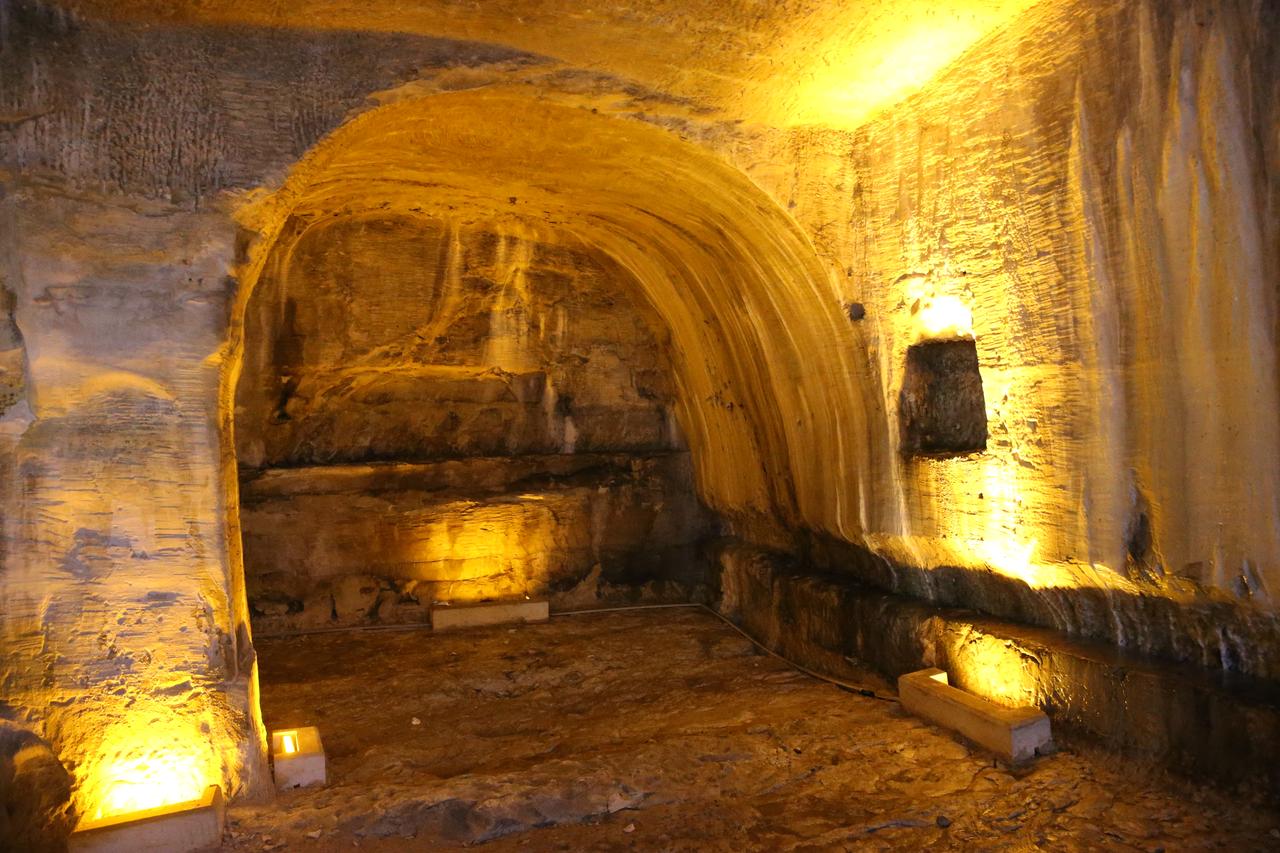
In the Cumhuriyet neighborhood of Birecik district in Sanliurfa province, the historic Cave (Magara) Mosque stands out as a rare example of a rock-carved place of worship. Local tradition holds that the site was originally used as a church by Christian communities before the region came under Muslim rule, and that it later took on a new role as a mosque.
Officials note that no firm information exists about when the cave structure was first carved or by whom, but they underline that its origins go back to the pre-Islamic period. This layered past has turned the mosque into a space where different phases of the region’s religious history come together under one roof.
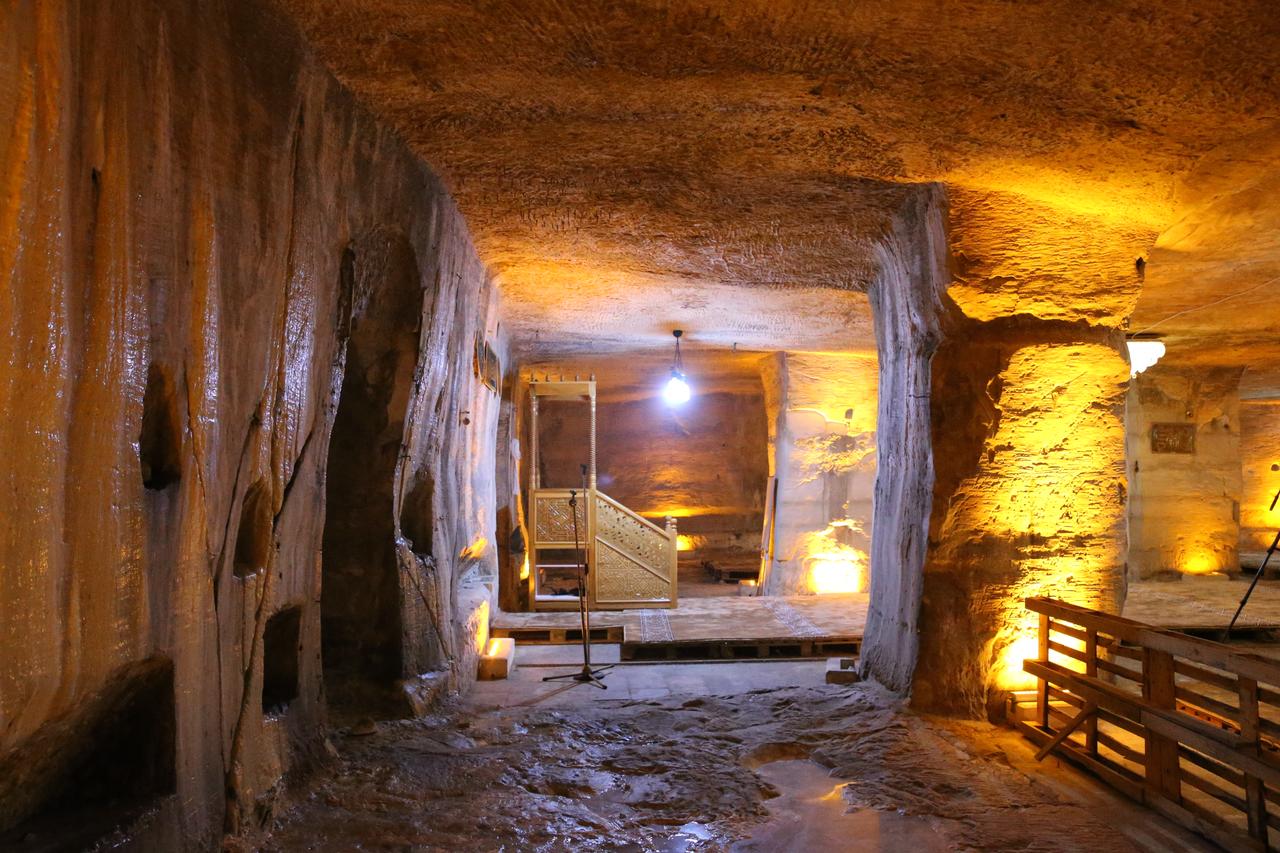
The mosque, hollowed directly out of the rock, remained in active use for many years after it was converted into a Muslim prayer space. However, rising water seeping through the ceiling and walls eventually made worship difficult and unsafe, and in 1964, the authorities decided to close the site to prayer.
Cave Mosque stayed closed for about 56 years, falling into disuse until the Regional Directorate of Foundations, the state body responsible for historic religious properties, launched a restoration and landscaping project. After these works were completed, the mosque reopened to worshippers and visitors in 2020 and has since started to build up a new life as both a local prayer space and a point of interest for guests.
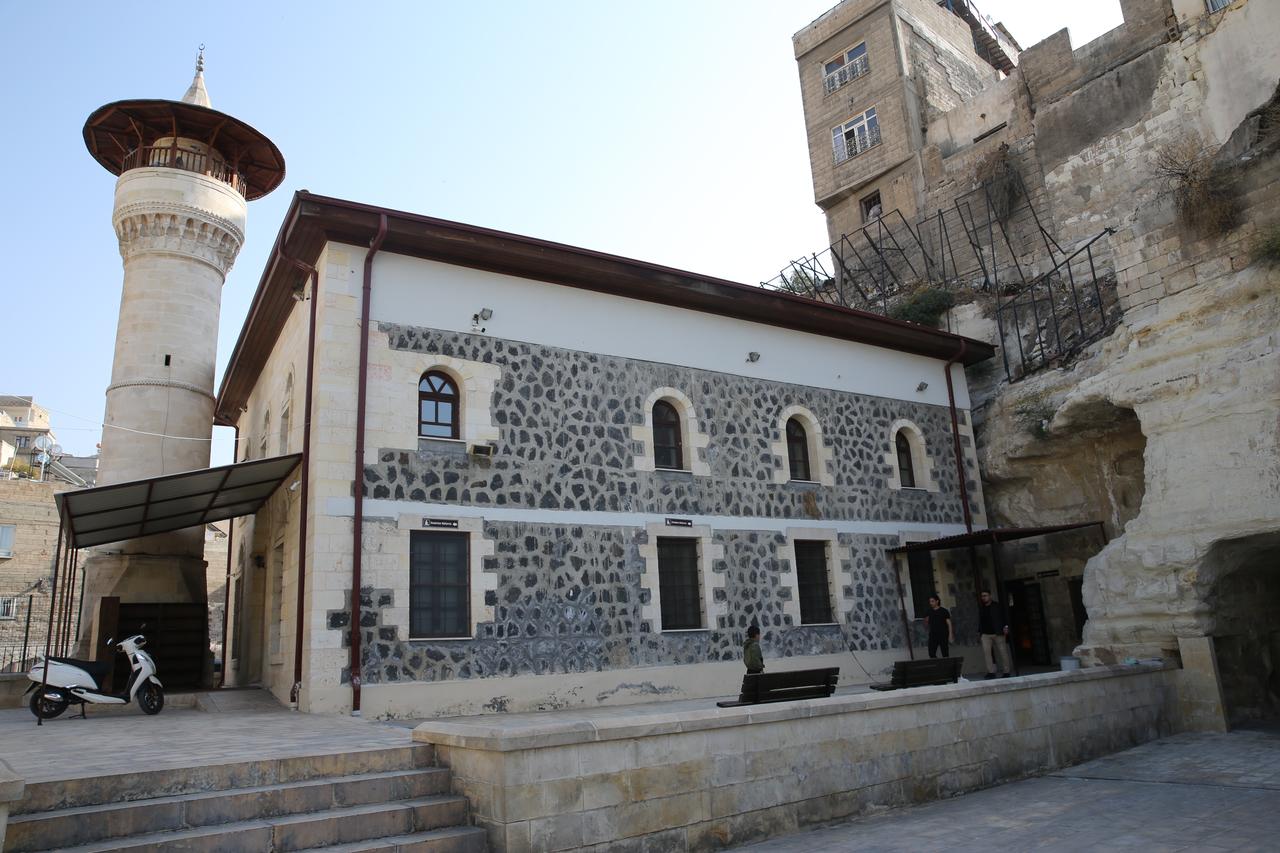
Birecik District Mufti Hanifi Ozlen, a senior religious official overseeing local mosques, points out that the cave structure’s age is unknown, but its spiritual effect is immediately felt by those who step inside. He says the building’s roots go back before the arrival of Islam, yet it now serves as a fully functioning mosque that carries on daily religious life.
Ozlen draws attention to the fact that the Cave Mosque did not suffer damage in the earthquakes that struck southern Türkiye on Feb. 6, 2023. While many other mosques in the area are undergoing restoration because of the quakes, he notes that this rock-carved building remained intact and continues to host prayers without interruption. He explains that when he first arrived in the district as mufti, he chose to perform his first prayer in office here, and he encourages visitors to come, see the site, and share in its quiet atmosphere.
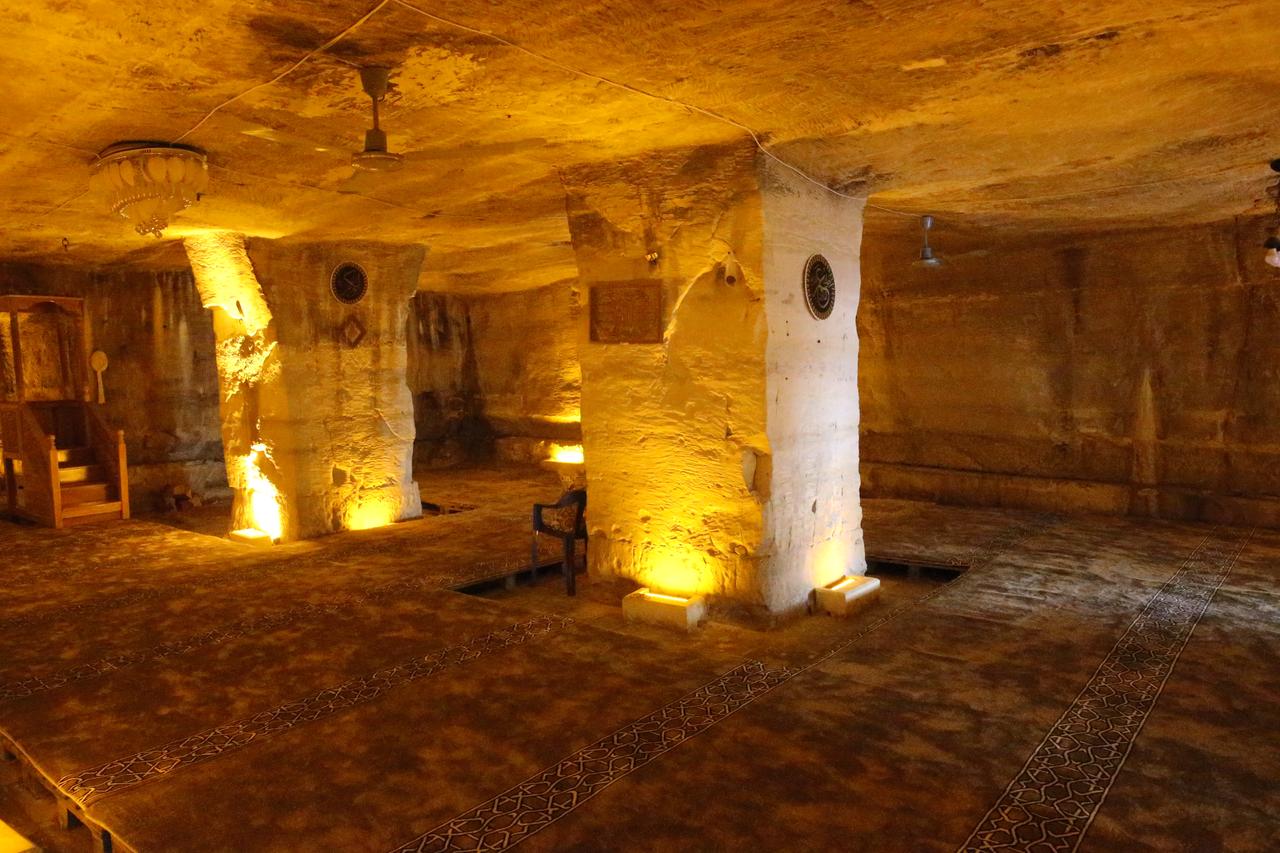
Orcun Kizmaz, the imam responsible for leading prayers and sermons at Cave Mosque, underlines that the structure draws attention because it has been carved directly into the rock. He says they invite everyone to visit, adding that guests often speak about the combination of lighting and the presence of water in the space, which together help create what they describe as a strong, peaceful mood.
Kizmaz notes that in the hot summer months, worshippers tend to come here to pray because the interior acts like a natural cooling system, with the rock keeping the temperature noticeably lower than outside. According to him, many visitors say they find it easier to concentrate on worship in this calmer, naturally cooled environment.
Local resident Berat Alcicek stresses that the mosque holds a special place in the life of the neighborhood. He describes it as a one-of-a-kind building with high spiritual value and calls on people to visit and experience the cave mosque for themselves.